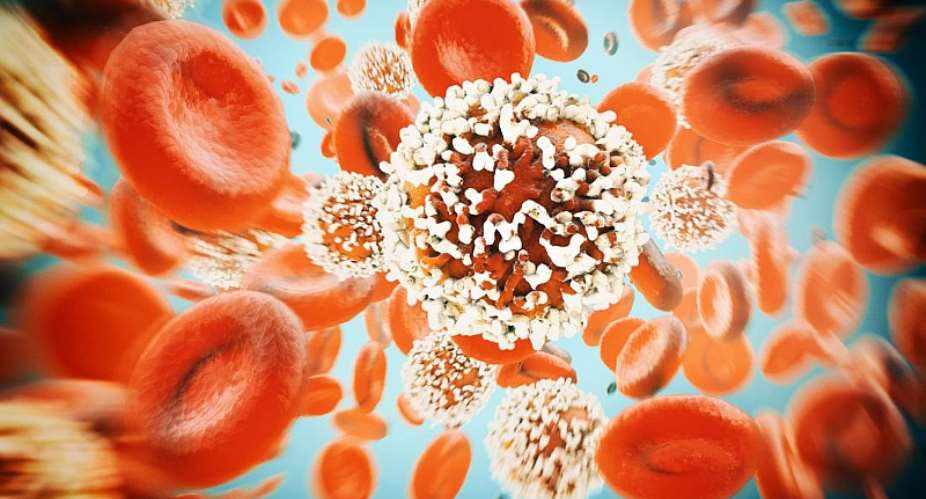Cervical cancer is a malignant tumour of the cervix, the lowermost part of the uterus. Human papillomavirus (HPV) infection is now recognized as the main cause of cervical cancer. It is a very deadly disease, this is because there may be no symptoms. In a few cases, there may be irregular bleeding or pain.
Cervical cancer is the fourth most frequent cancer in women with an estimated 570,000 new cases in 2018 representing 6.6% of all female cancers. Approximately 90% of deaths from cervical cancer occurred in low- and middle-income countries. The high mortality rate from cervical cancer globally could be reduced through a comprehensive approach that includes prevention, early diagnosis, effective screening and treatment programmes. There are currently vaccines that protect against common cancer-causing types of human papilloma virus and can significantly reduce the risk of cervical cancer.
Effective and organized screening has contributed to a decline in cervical cancer incidence and mortality over the past 50 years. However, women in developing countries are yet to profit extensively from the benefits of screening programs, and recent trends show a resurgence of the disease in developed countries. The past 2 decades have witnessed substantial progress in our understanding of the natural history of cervical cancer and in major treatment advances.
The age-standardized mortality rate for cervical cancer in Ghana, West Africa is more than three times the global cervical cancer mortality rate (27.6/100,000 vs. 7.8/100,000 respectively). The Pap test and visual inspection with acetic acid are available at public and private hospitals in Ghana. Approximately, 2.7% of Ghanaian women obtain cervical cancer screenings regularly. Men in middle-income countries play a key role in cervical cancer prevention. Increasing spousal support for cervical cancer screening may increase screening rates in Ghana.
Men play a significant role in the health behaviours of some Ghanaian women. Cervical cancer education interventions targeting Ghanaian men are needed to correct misconceptions and increase spousal support for cervical cancer screening. Initiative Against HPV and Cervical Cancer (GIAHC) aims to empower people, communities and societies internationally to reduce the disease burden from HPV and cervical cancers through collective engagement, advocacy, collaboration and education
Acknowledgments:
Dr. Kingsley Pereko
Dr. A. T. Derrick
Written by: Ayeh Owusu Esther Oyo
BSc. Physician Assistant Student
University of Cape coast
Level 200





 We’ll protect state wealth from opaque deals – Prof Jane Naana
We’ll protect state wealth from opaque deals – Prof Jane Naana
 Mauritania president says running for second term in June polls
Mauritania president says running for second term in June polls
 I won't ever say I was a mere driver’s mate' — Prof. Opoku-Agyemang
I won't ever say I was a mere driver’s mate' — Prof. Opoku-Agyemang
 2024 polls: 'EC struggling to defend credibility'— Prof. Opoku-Agyemang
2024 polls: 'EC struggling to defend credibility'— Prof. Opoku-Agyemang
 Akufo-Addo gov't's 'greed, unbridled arrogance, unrestrained impunity, sheer dis...
Akufo-Addo gov't's 'greed, unbridled arrogance, unrestrained impunity, sheer dis...
 Election 2024: Ghana needs an urgent reset, a leadership that is inspiring – Ma...
Election 2024: Ghana needs an urgent reset, a leadership that is inspiring – Ma...
 Partner NDC to rollout a future of limitless prospects – Prof Jane Naana Opoku-A...
Partner NDC to rollout a future of limitless prospects – Prof Jane Naana Opoku-A...
 NPP will remain in gov’t till Jesus comes — Diana Asamoah
NPP will remain in gov’t till Jesus comes — Diana Asamoah
 Sunyani Technical University demands apology from former SRC president over sex-...
Sunyani Technical University demands apology from former SRC president over sex-...
 'Dumsor' was resolved by Mahama but ‘incompetent' Akufo-Addo has destroyed the g...
'Dumsor' was resolved by Mahama but ‘incompetent' Akufo-Addo has destroyed the g...
